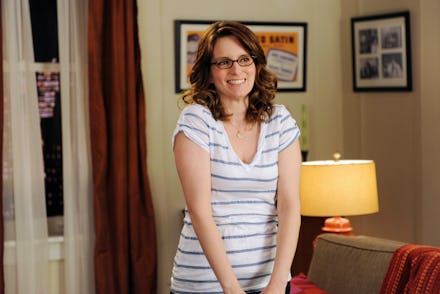When It Comes to Dating, It's Ambiverts Who Might Have the Advantage

Everybody loves a good label.
What else could explain our modern proclivity for categorizing ourselves into neat types like introverts and extroverts? The rise of the two terms has seen people enthusiastically identifying with one or the other in a celebration of their most extreme personality traits.
But if we're being honest, there are probably more of us who don't fit squarely into either the "introvert" and "extrovert" bucket — and that could give us a great advantage when it comes to dating.
Meet "ambiverts," the happy medium. If you put personality on a scale, extroversion falls on on one end and introversion on the other end. The scale, attributed to the famous Swiss psychiatrist Carl G. Jung, is based on where people draw their energy from. "There are certain people who definitely are more influenced by their surroundings than by their own intentions," Jung said in 1957. Those who draw energy from the external world versus their internal world are extroverts.
But, Jung noted, "There is no such thing as a pure extrovert or a pure introvert. Such a man would be in the lunatic asylum." He added, "There are people who are fairly well-balanced who are just as much influenced from within as from without, or just as little." Those people, who Jung recognized as "the most numerous," are what we've taken to calling ambiverts.
And while experts agree it's hard to definitively assign people a spot on the scale, personality psychologist Robert R. McCrae estimated that about 38% of us are ambiverts.
"There is no such thing as a pure extrovert or a pure introvert. Such a man would be in the lunatic asylum."
Ambiverts' balance makes them better at navigating social situations. They draw energy from their external surroundings but also from within themselves, which lends their personalities a certain balance. One 2013 study found that when it comes to success in business, for example, ambiverts trumped extroverts in influence, emotional stability, intuitiveness, flexibility and even making sales.
"Because they naturally engage in a flexible pattern of talking and listening," lead researcher Adam Grant wrote, "ambiverts are likely to express sufficient assertiveness and enthusiasm to persuade and close a sale, but are more inclined to listen to customers' interests and less vulnerable to appearing too excited or overconfident."
This flexibility was an asset when it came to interacting with others and being comfortable in a variety of situations. They don't need other people all the time, but they aren't overwhelmed by them either.
The ambivert advantage could extend to the dating world. When it comes to dating, ambiverts might feel like their personality types are to blame for their ambivalence. How many times have you felt like "putting yourself out there" and going out, but the draw of your bed and Netflix wins?
But ambiversion can be an awesome advantage. Ambiverts have personalities that allow for more of a give-and-take, and the flexibility allows them more leeway with others.
"Ambiverts may be better able to 'act out of character' as either an extrovert or an introvert depending on the situation and their desire to conform to the desires of a dating partner," Brian Little, author of Me, Myself and Us: The Science of Personality and the Art of Well-Being, told Mic. They are also "high self-monitors," meaning they can tweak their personality where necessary to appropriately accommodate the situation in which they find themselves.
"So an ambivert who is also a high self-monitor is particularly flexible in being able to present different personalities to different prospective dating partners," said Little. "Extreme extroverts and introverts can also act out of character, but it takes more of a toll on them."
Meaning ambiverts totally kill on those awkward OkCupid dates — or better yet, Grouper dates. Modern dating requires navigating some seriously choppy social waters. When it comes to modern courtship, ambiverts, we're looking pretty damn good.